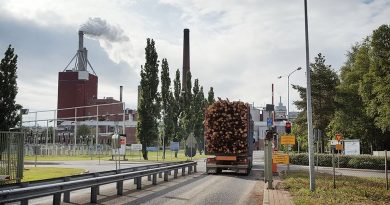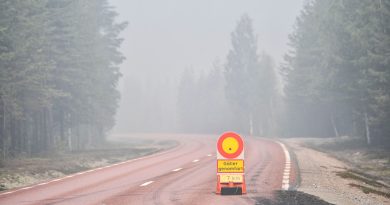UN agency cites worrying warming trend as COP28 summit grapples with climate change
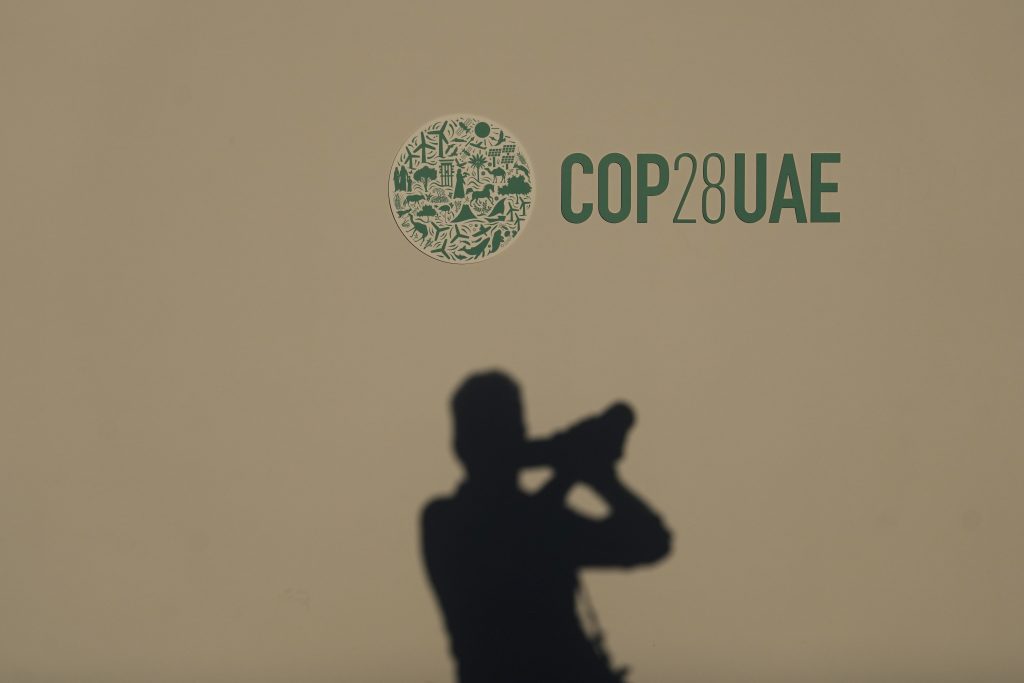
The United Nations weather agency is reporting that glaciers shrank more than ever from 2011 and 2020 and the Antarctic ice sheet lost 75 percent more compared to the previous ten years, as it released its latest stark report about the fallout on the planet from climate change.
The World Meteorological Organization served up more evidence of what scientists already know — the Earth is heating — on Tuesday, but this time looking at the trend over a longer period with its latest Decadal State of the Climate report.
“Each decade since the 1990s has been warmer than the previous one and we see no immediate sign of this trend reversing,” its secretary-general, Petteri Taalas, said. “We are losing the race to save our melting glaciers and ice sheets.”
Warming oceans and melting of ice sheets caused the rate of sea-level rise to nearly double in less than a generation, he said, and WMO says that bodes ill for low-lying coastal regions and countries.
Divisions
Experts are divided about one of the most important metrics: The rate of warming.
Former NASA top scientist James Hansen, nicknamed the Godfather of Global Warming for his early warnings, has reported that the rate is accelerating. University of Pennsylvania climate scientist Michael Mann has argued warming has been steadily increasing since 1990, but isn’t speeding up.
“The surface of the planet and the oceans both continue to warm at a steady rate, not an accelerating rate, and that’s bad enough,” Mann said in an email. He warned that such warming is fueling increasingly dangerous extreme weather events, coastal flooding and many other “disastrous” impacts.
“And the warming and its consequences will continue as long as we continue to generate carbon pollution through fossil fuel burning and other activities, highlighting the critical need for progress at the COP28 climate summit in Dubai taking place right now,” he wrote.
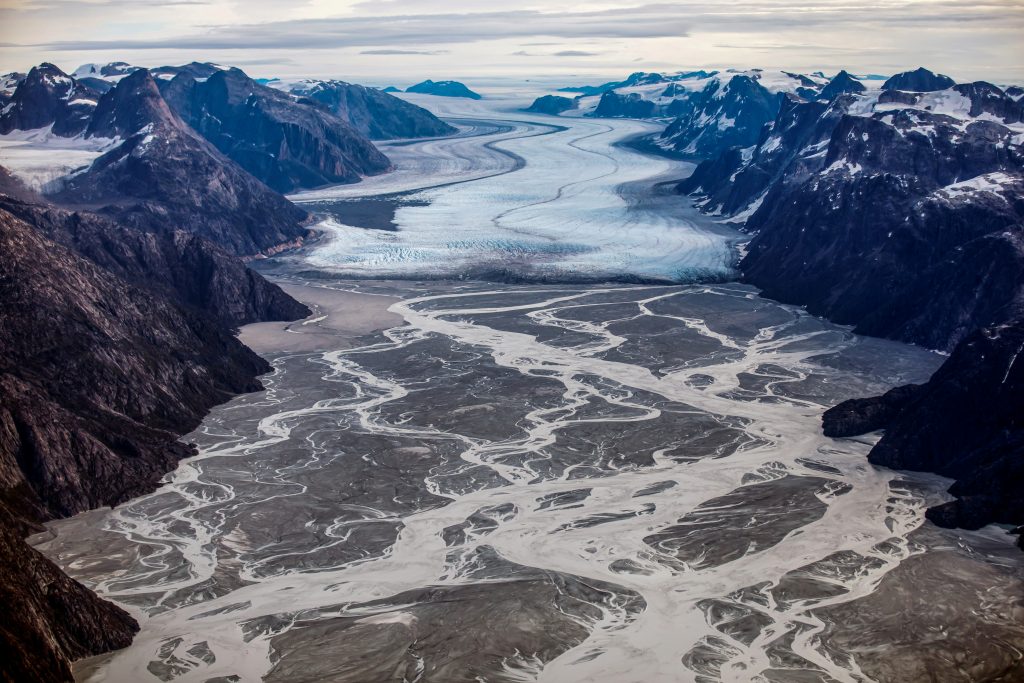
The WMO report said that glaciers measured around the world thinned by roughly one meter (about 3 feet) per year on average from 2011 to 2020, and a look at over 40 “reference glaciers” showed the lowest mass balances of any decade.
Glaciers declining all around the world
“The remaining glaciers near the Equator are generally in rapid decline. Glaciers in Papua, Indonesia are likely to disappear altogether within the next decade,” WMO said. “In Africa, glaciers on the Rwenzori Mountains and Mount Kenya are projected to disappear by 2030, and those on Kilimanjaro by 2040.”
As for the ice-sheet thaw, Greenland and Antarctica lost 38% more ice from 2011 to 2020 than in the previous decade. It also said that sea level rise has accelerated during the decade because of the melting.
WMO deputy secretary general Elena Manaenkova said the report is different from other warnings in the past because it provides a long-term perspective and sustained trends from the 2010s which can help discern where the warming is headed.
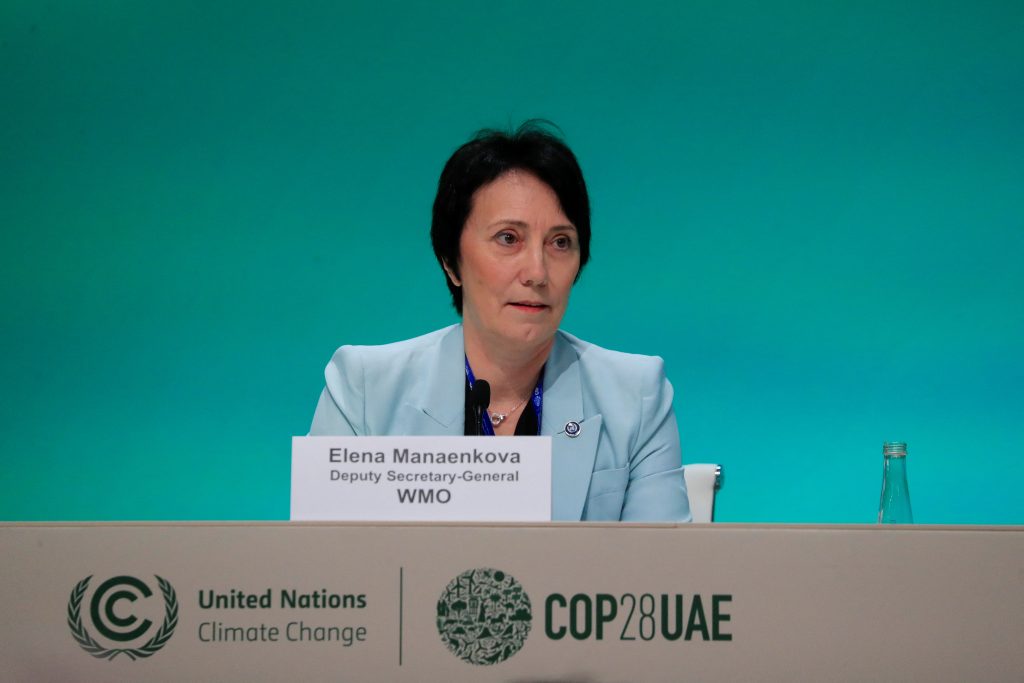
This report is also crucial to eliminate variations due to factors like natural weather phenomenon such as El Nino or La Nina, which are periods of unusual warming and cooling of the waters of the Pacific Ocean that have ripple effects on weather around the world.
“Often people react to the news of the day. With this, we can safely say where we are going,” Manaenkova said. With the world emitting 36.8 billion metric tons of carbon dioxide in 2023 –twice the yearly volume of four decades ago — Manaenkova, attending her 17th international climate conference, said: “Let’s finally get serious.”
Related stories from around the North :
Antarctica : British research ship crosses paths with world’s largest iceberg, The Associated Press
Arctic : Arctic Permafrost Atlas offers insights into the North’s changing landscape, Eye on the Arctic
Canada : Hard hit by climate change, Indigenous leaders want strong voice at COP28, CBC News
Norway : Lawmakers in Norway make a deal opening up for deep sea mining in Arctic Ocean, The Associated Press

